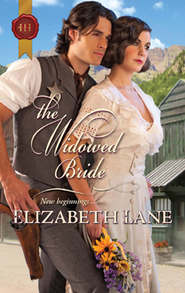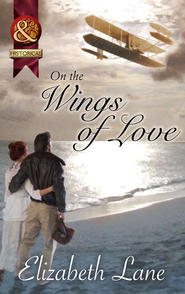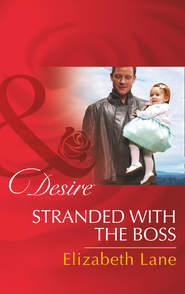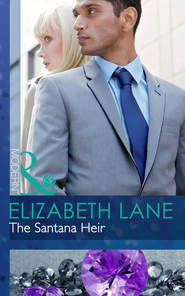По всем вопросам обращайтесь на: info@litportal.ru
(©) 2003-2024.
✖
Navajo Sunrise
Настройки чтения
Размер шрифта
Высота строк
Поля
“This woman was hungry and freezing!” She shouted above the wind in response to his question. “I did what any decent soul would do. I gave her something to eat and something to keep her warm.”
“And tomorrow she’ll be out here begging again!” he snapped. “She and a half dozen others who’ve seen what you gave her. Begging is not the way of my people! We may be poor, but we take care of our own!”
“So I see!” Miranda pushed herself fully erect, seething with indignation. “Is this how you take care of your helpless old people? By sending them out in the winter to starve or freeze?”
“My mother’s sister is not well. She wandered away from camp and I came looking for her.” He seemed somewhat taken aback by Miranda’s outburst, but only for an instant. Then his chiseled face darkened as he swung off his horse, seized the cloak and jerked it none too gently from around the old woman’s frail body.
“No!” Now it was Miranda’s turn to be indignant. “I gave her that cloak to save her life! You’ve no right to take it from her!”
The man’s thin upper lip curled in a grimace of contempt, showing a flash of white, even teeth. “You,” he snarled, dangling the garment from his long, brown fingers. “Teachers, missionaries, dogooders of every damned kind! You’re as bad as the army—no, worse! They only kill our bodies! You kill our spirits, our traditions, our pride!” The wind caught the cloak, swirling it high just before he flung it into the dust at Miranda’s feet.
“Pride?” She made no move to bend and pick it up, even though the cold was cutting like a knife through the thin serge of her suit jacket. “Will pride keep an old woman from freezing? Will pride keep a young child with an empty belly from crying in the night?”
For the space of a long, tense breath he glared at her. Then, without a word, he reached up and worked the opening of his own thick woolen poncho over his head. Bending down from his imposing six-foot height, he wrapped the poncho around the old woman’s shivering body. When he spoke to her in Navajo his voice was low, almost melodious. Miranda found herself straining her ears to catch the odd, birdlike tones of a language she was hearing for the first time. But he spoke only a few phrases. Then he lifted his head and glared at her with hate-filled eyes.
“We take care of our own,” he said in an icy voice, “and we would rather steal than beg. We don’t need your kind here. Get in that wagon and go back to where you came from, bilagáana woman! If you want to help us, write to your president in Washington and tell him to let the Diné go home to their own land!”
Miranda’s attention had been fixed on the old woman and the tall Navajo. She did not realize, until the first one spoke, that two of the outriders had dismounted and come up behind her.
“I’d watch my mouth if I was you, Ahkeah,” one of the men drawled. “This here ain’t no Bible-thumpin’ missionary lady. This is the major’s own daughter, come to pay her pa a visit.”
The revelation seemed to make no difference to the man the soldier had called Ahkeah. He stood his ground, the wind whipping his faded cotton tunic against his lean, hard body. Only by chance did Miranda notice that his hand had moved to rest protectively on old Sally’s humped shoulders.
“I say this uppity Injun ought to apologize to Miz Howell here and now.” The second outrider gripped his rifle, his swaggering stance challenging the unarmed Navajo to defy him. “Go ahead, Ahkeah, we’re all waitin’.”
Tension hung dark and leaden on the wintry air. In the wagon, the corporal slipped his rifle bolt into fully cocked position. The faint click splintered the icy silence, but no one else moved. Even the mules seemed to be watching, waiting, their white breath steaming from their distended nostrils.
Miranda had forgotten the cold wind that knifed through her clothing. She had almost forgotten to breathe. Her eyes were on Ahkeah. He had stepped in front of the old woman, shielding her with his body as he faced the soldiers. Under different circumstances his size and strength would have been more than a match for any two of them. But here and now the odds were nine against one, and all the cavalrymen were armed.
The Navajo’s flinty eyes narrowed like a puma’s as he measured his enemies. The man was proud, but no fool, Miranda surmised. He would choose his battles, and this was neither the time nor the place to take a stand. His throat rippled lightly as he swallowed, then spoke.
“My apologies, Miss Howell.” His voice dripped contempt. “In the future, kindly save your charity for those who appreciate it. Please enjoy your visit to this fair country.”
Without another word he turned a defiant back on the soldiers, and, shepherding the old woman before him, strode toward his emaciated horse.
“Not so fast!” the first outrider snapped. “If that was an apology, I’m the king of France, you smart-mouthed redskin bastard. Come on back here and say it like you mean it, or somebody’s gonna be pickin’ lead out of your backside!”
Ahkeah turned only when the second man cocked his rifle. His eyes glittered like black ice in the twilight. “I’m unarmed and here under treaty,” he said, his cold, flat voice implying that any soldier’s firing on a defenseless Navajo would raise a cry that would be heard all the way to Washington.
“Piss on the treaty,” the soldier growled. “I’ve shot plenty of your kind, Ahkeah. Too many for a piece of paper to make a dime’s worth of difference. Now, do you want to apologize to the lady again or do I pull this trigger and blow your stubborn head off?”
“This is ridiculous!” Miranda flung herself between the two antagonists. “No one is going to shoot anybody, Private. Now get back on your horse and let this man take his poor old aunt home.”
Distracted by her outburst, Ahkeah did not see what was coming next—nor did Miranda, until she heard the sickening thunk of a rifle butt against flesh and bone. The tall Navajo crumpled to the earth, felled by a third soldier, who had crept up behind him. He lay sprawled on his face, the blood seeping from his shattered temple onto the frozen ground.
Chapter Two
The old woman was first to reach the fallen Navajo. She crouched over him, pawing at his face with her hands and making the frightened little mewling noises. As Miranda approached, she scuttled backward and, still wearing the poncho he’d flung around her shoulders, vanished into the swirling darkness.
“Son of a bitch!” the private swore, jerking his rifle bolt back into safety position. “What’d you go and clobber him for, McCoy? That Ahkeah’s been nothin’ but trouble since the day he come in! Always stirrin’ things up! I coulda shot the bastard and been rid of him once and for all!”
“I did it to save your fool hide,” the other man retorted. “Pull the trigger on a Navajo, with so many government bigwigs snoopin’ ’round here, and your ass would be in a sling for the next twenty years! You’ll thank me for it once you simmer down.”
“Maybe.” The private wiped his runny nose with the back of his hand. “Come on, let’s get outa here. With luck, the bastard won’t even remember what hit him when he wakes up.” He spun on his heel and strode back toward his horse.
“Wait!” Miranda had dropped to the ground beside Ahkeah. Her urgent fingers probed his neck, groping for signs of life. Beneath her touch the Navajo’s skin was as cool and smooth as ivory, stretching taut over ropy cords of muscle and sinew. Pressing deeper, she found his pulse. The beat was thready and erratic. She remembered the sound of the blow, the crack of bone. Dread tightened like a clenched fist around her heart.
She crouched lower, laying her ear against his back to catch the labored rise and fall of his breathing. The aroma of mesquite smoke rose from his threadbare tunic, lingering at the edge of her awareness. Why should she care about this man? she found herself wondering. He was a stranger, almost an enemy, and he had spoken to her as if she were a troublesome child.
The rifle butt had struck just above his temple. She fingered the wound, felt the swelling flesh and the wetness of blood. “We can’t leave him here,” she announced to the soldiers. “Help me get him into the wagon.”
None of the men moved. “He’s just an Injun, miss,” the wagon driver said. “Injuns got hard heads. Afore long, this ’un will wake up sore and stumble on home.”
“And what if he doesn’t wake up?” Miranda flared. “There’s a storm blowing in! If you refuse to take him and he freezes or dies of his injuries out here, I’ll hold every last one of you accountable! Every newspaper and congressman in the country will hear about how you struck down an unarmed Indian and left him to die!”
None of the men responded, but she could sense their minds working, weighing her threat. Her father was a powerful man, and her influence on him could make life uncomfortable for them all.
At last the senior outrider, a sergeant, cleared his throat and spat in the alkali dust. “Load him in the damned wagon. When we get to the fort, we can dump him off at the Injun hospital.” He glared irritably at two of the men. “You! Move!”
“Watch his head.” Miranda hovered anxiously as the two soldiers lifted the unconscious Navajo and carried him toward the buckboard. His length sagged between them, one limp hand dragging in the dust. They hefted him high and rolled him onto the bed like the carcass of a freshly killed buck.
Miranda stifled a little cry as his body struck the planks. She paused to snatch up her discarded cloak from the ground. Then, without waiting for assistance, she scrambled up beside him and gathered his battered head into her lap. “Go,” she said to the driver. “Hurry.”
The wagon jounced over the rutted road as the mules broke into a trot. Miranda covered Ahkeah’s chilled body with the cloak and cradled his head to lessen the jarring. Tending injured men was nothing new to her. Her maternal uncle, Dr. Andrew Cavanaugh, who’d taken her in when her mother died, had spent the Civil War stationed at a Boston military hospital. With so many wounded to tend, he’d had little choice except to press his young niece into service. There was little in the way of grief and misery that Miranda had not seen. Perhaps that was why, when the war ended and she was able to resume her schooling, she had chosen to train not as a nurse, but as a teacher.
“Just think of it!” she had exclaimed to her disappointed uncle. “If we can teach children kindness and tolerance before they’re grown, perhaps there’ll be no more need for war!”
Miranda’s own words came back to haunt her now as she nestled the fallen Navajo’s head between her knees. His head wound had stopped bleeding, but his eyes were closed and his breathing was ragged. His pulse fluttered like the wings of a dying bird beneath her fingertips.
She remembered the sight of him, standing in the twilight beside his horse. His gaze had pierced her like a blade, touching deep, secret places that had lain undisturbed for all the twenty-two years of her life. Even now that he lay helpless in her lap, the power of his presence left her shaken. No one had ever looked at her with such pure hatred—a hatred that had chilled Miranda to her bones. What chance did her own beliefs stand against such deeply bred hostility? Why hadn’t she stayed in the East, where little more was expected of her than to be sweet, pleasant, ladylike and studious?
One of the outriders had caught Ahkeah’s horse and tied it to the back of the buckboard. When the clouds swept clear of the moon, Miranda could see the barred shadow of its rib cage below the tattered saddle blanket. When they reached the fort she would order the poor creature stabled and fed, she resolved. An animal, at least, would not be too proud to accept a bit of human kindness.
Ahkeah’s head rolled in her lap. He moaned softly, but his eyes did not open. Miranda gazed down at his moon-chiseled features—the jutting ledges of his cheekbones, the fine, straight nose, the long jawbones that met in a prominent, stubborn chin. His eyes lay in deep pools of shadow within the sockets of his skull. There was nothing to his face but skin and bone, and little more to his rangy body. All the same this Navajo was a riveting figure of a man—a wild hawk, lying broken and wounded in her arms, exuding a savagery that burned behind the lids of his closed eyes, searing her senses.
His limbs twitched like a dreaming animal’s as he moaned again, struggling in the depths of his darkness. Miranda’s fingers brushed back a tendril of night-black hair from his forehead. His skin was like polished jade, the hair stiff with alkali dust.
She thought of Phillip, his blue eyes, his fine, pale hair and his gentle ways. Dear heaven, what she wouldn’t give to be with him now, away from this bleak desert and this frightening man.
“It’s all right,” she whispered, remembering that seemingly unconscious people had been known to hear what was said to them. “You’ve got a head injury—perhaps a serious one. We’re taking you to the hospital at the fort. You’ll be looked after properly there.”
Had she felt his body jerk? The slight, convulsive shudder passed like a ripple beneath the woolen cloak and was gone.
“Ahkeah?” Could he really have heard her speak? Bending closer, Miranda gazed at him intently, but he did not move. Only his ragged, shallow breathing and the elusive flutter of his pulse told her he was alive.
Why did you hit him so hard? she wanted to scream at the soldier who’d crashed the rifle butt into Ahkeah’s dark head. Was it hatred, fear or simple stupidity? Miranda kept her silence, knowing that it was too late for outrage—and knowing, too, that this man could not be lost to his people. Whatever it took, whatever influence she could wield, she would see that he got the best possible care.
“Beggin’ your pardon, miss.” The driver’s twangy voice broke into her thoughts. “If there’s any chance that Injun can hear you, you’d best not say nothin’ ’bout the hospital.”











